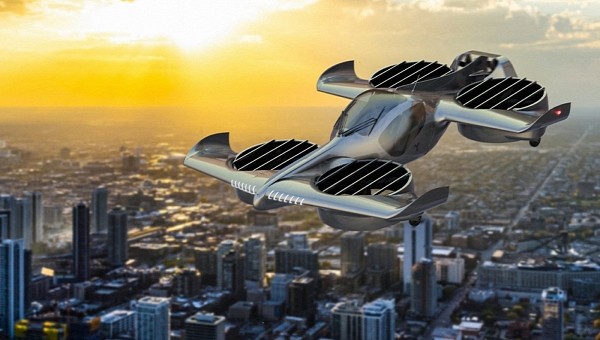Among all the eVTOL (electric vertical take-off and landing) concepts out there, very few are meant for personal use, which is why they’re so intriguing. Some manufacturers have conceived them as “electric personal jets,” such as the highly-popular Jetson One, while others envisioned these air vehicles as flying cars. One of these so-called flying cars comes from Miami, and is headed to Canada next.
What personal electric jets and flying cars have in common is the proclaimed goal of giving everyone access to personal flight. If most eVTOLs are presented as alternatives to public and shared transportation, these particular versions claim to be able to replace personal cars, for commuting and leisure transportation. The idea is that future owners wouldn’t need to be certified pilots in order to fly these safe, easy-to-handle, and user-friendly “cars.”
Doroni Aerospace, a company that’s headquartered in Miami, has been working on this since 2016, and believes that now is the right moment for this revolution in mobility, thanks to the advances in both drone technology and automated driving.
Last year, the brand has officially introduced its first flying car, meant for personal flights. Although its name isn’t as catchy as the Jetson One, the H1 eVTOL is just as interesting. It’s a two-seater fitted with two sets of wings, each with their own pair of ducted fans. Doroni describes this contraption both as a flying car and a multi-rotor aircraft.
The Doroni H1 is supposed to be safe enough to be operated even by folks who aren’t professional pilots, thanks to the builder’s proprietary aircraft control system. Similar to cars, this eVTOL can simply be parked in a two-car garage, where it can also be recharged.
Twenty minutes will supposedly be enough to get its battery from 20 to 80 percent. On a full charge, this flying car promises a range of 60 miles (96 km). If a thrilling flight sounds better than a long one, the eVTOL can also hit 140 mph (225 kph). As for the payload, the maximum that the Doroni H1 can handle adds up to 500 pounds (226 kg).
Although the future flying car can already be pre-ordered by anyone online, the brand is also gearing up to officially hit the Canadian market, through a commercialization partnership. A Canadian operator specializing in RPAS (remotely-operated aircraft systems) is interested in purchasing and then selling 25 units of the Doroni H1.
What’s interesting is that 3Points is also set to assist the manufacturer with the upcoming testing of the eVTOL’s early versions. That will probably happen soon, since the first deliveries for individual customers are already scheduled for the first quarter of 2024. It will be interesting to see how many people were willing to spend $150,000 on this electric flying car.
Doroni Aerospace, a company that’s headquartered in Miami, has been working on this since 2016, and believes that now is the right moment for this revolution in mobility, thanks to the advances in both drone technology and automated driving.
Last year, the brand has officially introduced its first flying car, meant for personal flights. Although its name isn’t as catchy as the Jetson One, the H1 eVTOL is just as interesting. It’s a two-seater fitted with two sets of wings, each with their own pair of ducted fans. Doroni describes this contraption both as a flying car and a multi-rotor aircraft.
The Doroni H1 is supposed to be safe enough to be operated even by folks who aren’t professional pilots, thanks to the builder’s proprietary aircraft control system. Similar to cars, this eVTOL can simply be parked in a two-car garage, where it can also be recharged.
Twenty minutes will supposedly be enough to get its battery from 20 to 80 percent. On a full charge, this flying car promises a range of 60 miles (96 km). If a thrilling flight sounds better than a long one, the eVTOL can also hit 140 mph (225 kph). As for the payload, the maximum that the Doroni H1 can handle adds up to 500 pounds (226 kg).
Although the future flying car can already be pre-ordered by anyone online, the brand is also gearing up to officially hit the Canadian market, through a commercialization partnership. A Canadian operator specializing in RPAS (remotely-operated aircraft systems) is interested in purchasing and then selling 25 units of the Doroni H1.
What’s interesting is that 3Points is also set to assist the manufacturer with the upcoming testing of the eVTOL’s early versions. That will probably happen soon, since the first deliveries for individual customers are already scheduled for the first quarter of 2024. It will be interesting to see how many people were willing to spend $150,000 on this electric flying car.








